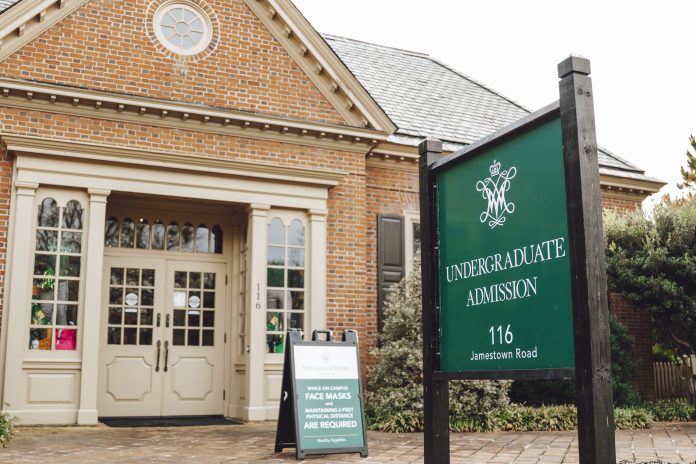Enya Xiang ’25 is a history major in the William & Mary/St. Andrews Joint Degree Program. She is from outside Philadelphia and writes for the opinion section. Outside of the Flat Hat, she is part of William & Mary’s Innocence Project Club and enjoys kayaking and writing limericks. Email Enya at exiang@email.wm.edu.
The opinions expressed in the article are the author’s own.
For the American youth, the college application process is brutal. A faceless committee defending a fateful portal judges your worth as a human being; you are in or you are out. As applicant pools grow larger and more competitive, forcing colleges to be more selective, the question of who deserves a college education becomes even more compelling.
Affirmative action, preference given to those who have experienced historical and political injustices, is now in legal peril. By removing a mechanism that keeps educational inequities in check, the misguided effort to end affirmative action weakens the American Dream that the pursuit for knowledge embodies so fully. We should instead challenge the truly baseless policy of legacy preference in college admission.
On Jan. 24, the U.S. Supreme Court agreed to consider challenges to the affirmative action policies at Harvard University and the University of North Carolina. The new conservative supermajority on the court threatens 40 years of precedent stating that race can be evaluated in order to improve educational opportunities for minorities. This ruling will affect higher education nationwide, including the College of William and Mary’s own affirmative action policies.
Harvard has been accused of discriminating against Asian-American students by using a subjective rating system to gauge traits like likability, courage and kindness which systematically gives Asian Americans lower scores, creating an admission ceiling. UNC has been accused of discriminating against white and Asian applicants by giving preferential treatment to Black, Hispanic and Native American applicants. These cases have been brought by Edward Blum, head of Students for Fair Admissions, an organization dedicated to legally challenging race-conscious admissions.
This movement to strike down affirmative action reveals a deep misunderstanding of the unjust American education system. Instituted in the civil rights era, affirmative action is America’s flimsy attempt to fix gaping educational inequities that are split along socioeconomic and racial lines. By the time students leave high school, the inequitable outcomes of the education system have already come to fruition; long before graduation, divisions and stereotypes emerge in high school transcripts, extracurricular schedules and standardized test scores, which have a well-documented correlation with family income.
I remember the same Harvard case when it was first brought to the Supreme Court four years ago when I was still in high school. To this day, Harvard still lacks an explanation for the lower personal scores given to Asian Americans.
Harvard’s own data suggests that admissions officers give lower personal ratings to Asians in regard to character and personality. Harvard’s expert economist David Card defends the validity of Harvard’s personal ratings system in his report, suggesting that Asian Americans lack in multi-dimensionality, which Harvard measures in three non-academic categories: athletic, extracurricular and personal. However, his argument begs the question by using the same data set whose very validity is in question.
Though the model minority myth persists, the grievances of one minority group should not be pitted against another’s. What often gets left out is the other selective avenue of college admission. Legacy policies and preferences given to students with family connections remain vague and secretive, including at the College. The Admit It! William & Mary Blog states online:
“We consider legacy status a plus factor; being a legacy contributes positively to the applicant’s review but does not trump or outweigh every other factor we consider. Being a legacy cannot make an otherwise uncompetitive applicant competitive (in other words being a legacy cannot raise the dead — to extend the metaphor further it cannot even heal the sick).”
The resumes of legacy students are not in question, but the principle itself is. Legacy preference stems from the old historical tradition of educational gatekeeping, preserving an elite class so that certain people always have access to power. Legacy reinforces the principle that one’s family line guarantees undeserved privileges — a step back for equality of opportunity. In early February 2022, a Congressional bill was introduced to end legacy admission at higher education institutions participating in federal student aid programs.
The Supreme Court will hear arguments in the Harvard and UNC case during its next October term and will likely come to a decision in the spring or summer of 2023. A ruling that limits affirmative action will reshape college admission, future college classes and the workplace.
As the college degree becomes both more necessary and harder to attain, we cannot lose sight of the purpose of education. We learn so that we develop a sense of agency and the power to critically think about the world. Who has already had that opportunity and who never had the chance?

































